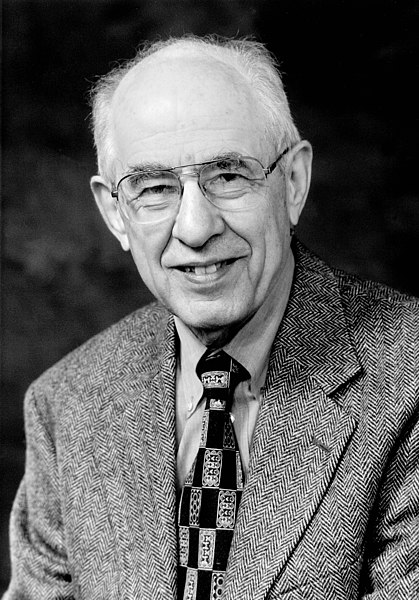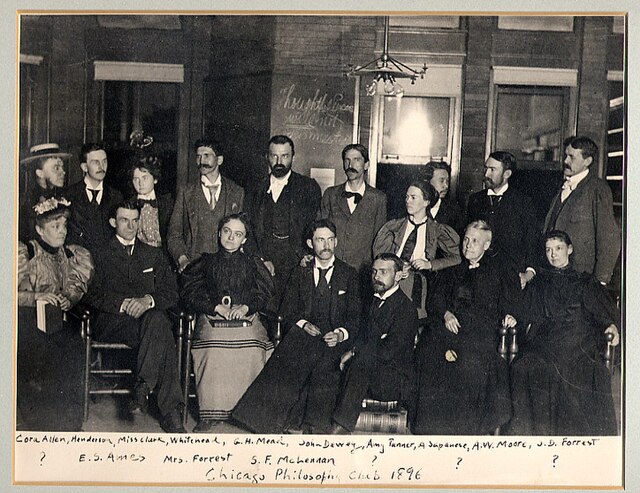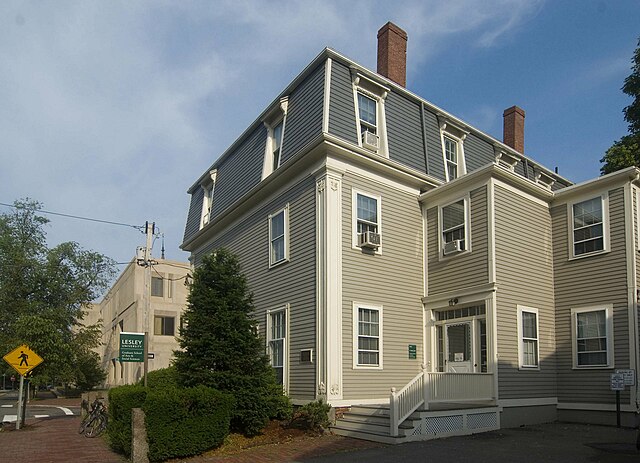Pragmatism is a philosophical tradition that views language and thought as tools for prediction, problem solving, and action, rather than describing, representing, or mirroring reality. Pragmatists contend that most philosophical topics—such as the nature of knowledge, language, concepts, meaning, belief, and science—are all best viewed in terms of their practical uses and successes.
Charles Peirce: the American polymath who first identified pragmatism
Hilary Putnam said that the combination of antiskepticism and fallibilism is a central feature of pragmatism.
The "Chicago Club" including Mead, Dewey, Angell, and Moore. Pragmatism is sometimes called American pragmatism because so many of its proponents were and are Americans.
Charles Sanders Peirce was an American scientist, mathematician, logician, and philosopher who is sometimes known as "the father of pragmatism". According to philosopher Paul Weiss, Peirce was "the most original and versatile of America's philosophers and America's greatest logician". Bertrand Russell wrote "he was one of the most original minds of the later nineteenth century and certainly the greatest American thinker ever".
Peirce in 1891
Peirce's birthplace. Now part of Lesley University's Graduate School of Arts and Social Sciences.
Peirce in 1859
"The World on a Quincuncial Projection", 1879. Peirce's projection of a sphere onto a square keeps angles true except at four isolated points on the equator, and has less scale variation than the Mercator projection. It can be tessellated; that is, multiple copies can be joined continuously edge-to-edge.







